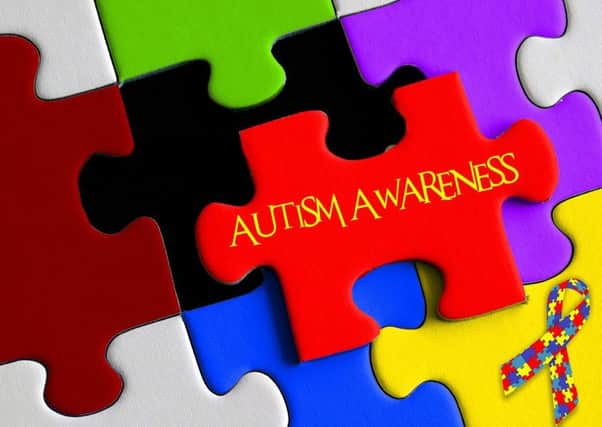Almost 600 waiting for Autism assessment


The Western Trust has confirmed that the numbers referred for assessment and intervention has risen dramatically.
And this has now prompted Trust representatives to relay concerns to both the Health and Social Care Board and Department of Health.
Advertisement
Hide AdAdvertisement
Hide AdAt present there are 493 children and 81 adults across Derry, Limavady, Strabane and the wider western region, waiting to begin assessment to detect if they are on the Autism spectrum.
A further 394 children and 55 adults are currently undergoing the assessment process within the Trust.
The figures were obtained by the ‘Journal’ after a recent report revealed that the number of school age children - 993 - who have come through the assessment process and been diagnosed with Autism and Asperger Syndrome in the west, has increased by almost 50 per cent over the last five years, despite intake numbers remaining static.
Commenting on the waiting lists, a spokesperson for the Western Trust said: “The demand for Autism assessment and intervention for both children and adults within the Western Trust has increased significantly and this trend continues. Current resource does not meet the level of demand within the Trust and this has been highlighted to the HSCB and DoH.”
Advertisement
Hide AdAdvertisement
Hide AdThe recent Department of Health report entitled, ‘The Prevalence of Autism (including Asperger Syndrome) in School Age Children’ - found that the increase in children identified with Autism was 31 per cent higher in the most deprived areas of Northern Ireland - several of which are in Derry.
It also confirms that boys are almost four times more likely to be identified with Autism than girls here.
The report authors stated that the “need to develop and improve health and social care services for people of all ages who are affected by autism (including Asperger Syndrome) has been apparent for some time.”
In terms of a child’s Autism diagnostic assessment process, the Western Trust said this involves a multi- disciplinary team and is in line with National Institute for Health and Care Excellence (NICE) guidelines.
Advertisement
Hide AdAdvertisement
Hide AdThe process involves consideration of the child’s developmental history, observations and assessments.
Close liaison also takes place between all relevant professionals and information is obtained from educational settings. Upon completion of the process, a summary report is completed for all children, which is copied to all professionals involved including health, education and parents/carers.
“The time taken to complete the assessment process is variable and a diagnostic decision can be made when it is clinically appropriate to do so,” the Trust spokesperson said.
For adults, the local ASD service, meanwhile, currently accepts referrals from health professionals for diagnostic assessment. The referring health professionals are required to provide evidence that the person being referred requires a specialist assessment for ASD.
Advertisement
Hide AdAdvertisement
Hide AdThe Trust has a single point of access for all queries on adult ASD assessment.
The Trust spokesperson said: “Depending on the person being assessed the service may or may not seek additional or supporting information from GP, other health services (such as mental health and intellectual disability services). The service may also gain supporting evidence from past educational assessments.”
Diagnostic assessment involves observation, specialist assessment and self-report and corroborative information are sought.
“The Adult ASD Service is a trust wide service and currently has a limited number of staff focused on diagnostic assessments. There is also a post diagnostic support and intervention service provided by the same small staff team,” the spokesperson said.